Introduction
Heart disease describes a range of conditions that affect your heart. Diseases under the heart disease umbrella include blood vessel diseases, such as coronary artery disease; heart rhythm problems (arrhythmias); and heart defects you’re born with (congenital heart defects), among others.
The term “heart disease” is often used interchangeably with the term “cardiovascular disease.” Cardiovascular disease generally refers to conditions that involve narrowed or blocked blood vessels that can lead to a heart attack, chest pain (angina) or stroke. Other heart conditions, such as those that affect your heart’s muscle, valves or rhythm, also are considered forms of heart disease.
Types of heart disease
Heart failure
Heart failure happens when the heart can’t pump enough blood throughout the body. Heart failure doesn’t mean that your heart has stopped or is about to stop working. It means that your heart can’t fill with enough blood or pump with enough force, or both. Heart failure develops over time as the pumping action of the heart grows weaker.
Heart attacks
Occur when the blood flow to a part of the heart is blocked, usually by a blood clot. If this clot cuts off the blood flow completely, the part of the heart muscle supplied by that artery begins to die.
Arrhythmia
An arrhythmia is a problem with the speed or rhythm of the heartbeat caused by a disorder in the heart’s electrical system. There are many types of arrhythmias. Most are harmless, but some can be serious or even life threatening. The most common type of serious arrhythmia is atrial fibrillation, or AF.
Atherosclerosis
Atherosclerosis or hardening of the arteries, or, is when the inner walls of arteries become narrower due to a buildup of plaque (usually caused by a diet high in fat, cigarette smoking, diabetes or hypertension). This limits the flow of blood to the heart and brain. Sometimes, this plaque can break open. When this happens, a blood clot forms and blocks blood flow in the artery. This can cause a heart attack or stroke.
Aneurysm
An aneurysm is a balloon-like bulge in the wall of an artery or the heart muscle. This bulge can occur if the artery wall weakens. Pressure from blood moving through the artery or heart causes the weak area to bulge. Over time, an aneurysm can grow and burst, causing dangerous, often fatal bleeding inside the body. Aneurysms also can develop a split in one or more layers of the artery wall. The split causes bleeding into and along the layers of the artery wall. Aneurysms in the heart most often occur in the heart’s lower left chamber (the left ventricle).
Aortic aneurysm
Risk factors that affecting the heart disease
- Hypertension: Hypertension is defined as an average systolic blood pressure greater than or equal to140 mmHg or an average diastolic blood pressure of greater than or equal to 90 mmHg.
- Sleep apnea: Has anyone ever told you that you snore? Loud snoring can be a sign of sleep apnea, a sleep disorder that can raise your chances of having a heart attack.
- Diabetes Mellitus: Diabetes mellitus (DM) is a group of diseases marked by high levels of blood glucose resulting from inadequate insulin production or insulin action.
- Elevated Total Cholesterol: High serum cholesterol is defined as 240 mg/dl and is one of the major risk factors for CVD.
- Tobacco Use: Smoking leads to the accumulation of plaque in the arteries; this build-up blocks blood flow and can cause coronary heart disease and heart attacks.
- Physical Inactivity: The American Heart Association recommends at least 150 minutes of moderate exercise per week (or 75 minutes per week of vigorous exercise) to promote cardiovascular fitness, since regular physical activity reduces the risk of dying from CVD.
- Obesity: The NIH defines “overweight” as having extra body weight from muscle, bone, fat, and/or water and “obesity” as having a high amount of extra body fat.
- Drinking alcohol: Heavy drinking causes many heart related problems. More than 3 drinks per day can raise blood pressure and triglyceride levels. Too much alcohol also can damage the heart muscle, leading to heart failure.
- Metabolic syndrome: Having metabolic syndrome doubles your risk of getting heart disease or having a stroke.
- Depression, anxiety, and stress: Negative emotions such as depression, anxiety, and anger have all been shown to increase your chances of developing or dying of heart disease.
- Not enough sleep: Most adults need 7 to 9 hours of sleep to feel well rested during the day.
- Lower income: Research shows that lower income adults have an increased risk of heart disease. Also, children born into lower income families are more likely to have heart disease in adulthood.
Risk factors that you cannot change
- Age: Women develop heart disease about 10 to 15 years later than men. This is because until you reach menopause, your ovaries make the hormone estrogen, which protects against plaque buildup.
- Family history of early heart disease: Women with a father or brother who developed heart disease before age 55 are more likely to develop heart disease.
Symptoms of heart disease
Some heart attacks are sudden and intense. But most start slowly, with mild pain or discomfort. Here are some of the signs that can mean a heart attack is happening:
- Uncomfortable pressure, squeezing, fullness or pain in the center of your chest. It lasts more than a few minutes, or goes away and comes back.
- Pain or discomfort in one or both arms, your back, neck, jaw or stomach.
- Shortness of breath with or without chest discomfort.
- Other signs such as breaking out in a cold sweat, nausea or lightheadedness.
- Sleep apnea: Loud snoring can be a sign of sleep apnea, a sleep disorder that can raise your chances of having a heart attack.
Complications involved all types of heart disease
- Angina
- Atrial Fibrillation
- Pulmonary Edema
- Stroke
- Wheezing
- Swelling of the ankles
- dizziness
Test and diagnosis for heart disease
After taking a careful medical history and doing a physical examination, your doctor may give you one or more of the following tests:
Electrocardiogram (ECG or EKG) makes a graph of the heart’s electrical activity as it beats. This test can show abnormal heartbeats, heart muscle damage, blood flow problems in the arteries, and heart enlargement.
Stress test (or treadmill test or exercise ECG) records the heart’s electrical activity during exercise usually on a treadmill or exercise bike. If you are unable to exercise, you can take a medicine instead that shows any problems in the blood flow to the heart.
Nuclear scan (or thallium stress test) shows the working of the heart muscle as blood flows through the heart. A small amount of radioactive material is injected into a vein—usually in the arm—and a camera records how much is taken up by the heart muscle.
Echocardiography changes sound waves into pictures that show the heart’s size, shape, and movement. The sound waves also can be used to see how much blood is pumped out by the heart when it contracts.
Coronary angiography (or angiogram or arteriography) shows an x-ray image of blood flow problems and blockages in the coronary arteries. A thin tube called a catheter is threaded through an artery of an arm or leg up into the heart. A dye is injected into the tube, allowing the heart and vessels to be filmed as the heart pumps. A ventriculogram—a picture of the left ventricle of the heart—is sometimes taken as part of the coronary angiography procedure.
Intracoronary ultrasound uses a catheter to create a picture of the coronary arteries. It shows the thickness of the arteries and any blockages in blood flow.
Aortogram
An aortogram is an angiogram of the aorta. The aorta is the main artery that carries blood from your heart to your body. An aortogram may show the location and size of an aortic aneurysm.
Cardiac Computed Tomography Scan
A cardiac computed tomography scan, or cardiac CT scan, is a painless test that uses an x-ray machine to take clear, detailed pictures of the heart. Sometimes an iodine-based dye (contrast dye) is injected into one of your veins during the scan. The contrast dye highlights your coronary (heart) arteries on the x-ray pictures. This type of CT scan is called a coronary CT angiography, or CTA.
Cardiac Magnetic Resonance Imaging
Cardiac MRI creates images of your heart as it is beating. The computer makes both still and moving pictures of your heart and major blood vessels. Cardiac MRI shows the structure and function of your heart. This test can show the size and location of an aneurysm.
Chest X Ray
A chest x ray creates pictures of the structures inside your chest, such as your heart, lungs, and blood vessels.
Managing and treating of heart disease
If you have heart disease, it is extremely important to control it. You can help to do this by:
- Eating a heart-healthy diet
- Quitting smoking if you smoke
- Getting regular physical activity
- Losing weight if you are overweight or obese
- Reducing stress
- Taking medicines as directed by your doctor
Medicines
Along with making lifestyle changes, you may need medicines to help control your heart disease. These medicines can include:
- Cholesterol-lowering medicines
- Beta blockers, calcium channel blockers, or ACE inhibitors to lower blood pressure and lighten the workload for the heart
- Antiplatelet medicines stop blood cells called platelets from clumping together and forming clots.
- Aspirin One well-known antiplatelet medicine is aspirin. In fact, aspirin is given right away to anyone suspected of having a heart attack. Your doctor may also suggest that you take aspirin every day if you are at risk of heart disease. If you are younger than 65 years and are at low risk of heart disease, your doctor will probably not suggest that you take aspirin.
- Anticoagulants stop clots from forming in your arteries and blocking blood flow.
- Nitrates, such as nitroglycerin, widen the coronary arteries, which helps lessen chest pain.
- Thrombolytic agents break up blood clots that form during a heart attack. The sooner these drugs are given to someone having a heart attack, the better they are at preventing heart damage.
Special procedures or surgery
If lifestyle changes and medicines do not improve your heart disease symptoms, your doctor may suggest special procedures or surgery. These include:
Angioplasty
This procedure is usually done right away if coronary angiography shows problems in blood flow in a coronary artery. A thin tube with a balloon at one end is threaded into a coronary artery that has narrowed because of plaque buildup. Once in place, the balloon is inflated to push the plaque against the artery wall. This opens the artery more so that blood can flow freely.
Stent
A stent is a mesh tube used to hold open a narrowed or weakened artery. It is put in place during an angioplasty. Some stents are coated with a medicine to keep arteries from narrowing or becoming blocked again. Not all people who have angioplasty need a stent.
Coronary artery bypass surgery
In this procedure, a short piece of vein or artery (Coronary artery bypass graft) from another part of your body is used to reroute blood around a blockage in a coronary artery. This restores blood flow to the heart.
Heart Transplant
A heart transplant is surgery to remove a person’s diseased heart and replace it with a healthy heart from a deceased donor. Most heart transplants are done on patients who have end-stage heart failure. Heart failure is a condition in which the heart is damaged or weak. As a result, it can’t pump enough blood to meet the body’s needs. “End-stage” means the condition is so severe that all treatments, other than heart transplant, have failed.
Pacemaker or an implantable cardioverter defibrillator (ICD)
A pacemaker is a small device that’s placed under the skin of your chest or abdomen. Wires connect the pacemaker to your heart chambers. The device uses low-energy electrical pulses to control your heart rhythm. Most pacemakers have a sensor that starts the device only if your heart rhythm is abnormal.
An ICD is another small device that’s placed under the skin of your chest or abdomen. This device also is connected to your heart with wires. An ICD checks your heartbeat for dangerous arrhythmias. If the device senses one, it sends an electric shock to your heart to restore a normal heart rhythm.
Surgery to Place Ventricular Assist Devices or Total Artificial Hearts
A VAD is a mechanical pump that is used to support heart function and blood flow in people who have weak hearts. Your doctor may recommend a VAD if you have heart failure that isn’t responding to treatment or if you’re waiting for a heart transplant. You can use a VAD for a short time or for months or years, depending on your situation.
A TAH is a device that replaces the two lower chambers of the heart (the ventricles). You may benefit from a TAH if both of your ventricles don’t work well due to end-stage heart failure. Placing either device requires open-heart surgery.
Transmyocardial Laser Revascularization (TMLR)
Transmyocardial laser revascularization, or TMLR, is surgery used to treat angina. TMLR is most often used when no other treatments work. For example, if you’ve already had one CABG procedure and can’t have another one, TMLR might be an option. For some people, TMLR is combined with CABG. If TMLR is done alone, the procedure may be performed through a small opening in the chest.
During TMLR, a surgeon uses lasers to make small channels through the heart muscle and into the heart’s lower left chamber (the left ventricle). It isn’t fully known how TMLR relieves angina. The surgery may help the heart grow tiny new blood vessels. Oxygen-rich blood may flow through these vessels into the heart muscle, which could relieve angina.
Strategies to prevent and control heart disease
Even if you have heart disease, there’s a lot you can do to improve your heart’s health. Work with your healthcare provider to set goals to reduce your risk of heart attack.
- Don’t smoke, and avoid second-hand smoke.
- Treat high blood pressure, if you have it.
- Eat a healthy diet that’s low in saturated fat, trans fat, and sodium (salt).
Major sources of saturated fat include:
- Red meat
- Full-fat dairy products
- Coconut and palm oils
Sources of trans fat include:
- Deep-fried fast foods
- Bakery products
- Packaged snack foods
- Margarines
- Crackers, chips and cookies
- Get at least 150 minutes of moderate-intensity physical activity a week.
- Reach and maintain a healthy weight.
- Control your blood sugar if you have diabetes.
- See your doctor for regular check-ups.
- Take your medicines exactly as prescribed.
- Get enough quality sleep
- Get regular health screenings
- Blood pressure
- Cholesterol levels
- Diabetes screening
- Manage stress by doing relaxation exercises or meditation
 Diseases Treatments Dictionary This is complete solution to read all diseases treatments Which covers Prevention, Causes, Symptoms, Medical Terms, Drugs, Prescription, Natural Remedies with cures and Treatments. Most of the common diseases were listed in names, split with categories.
Diseases Treatments Dictionary This is complete solution to read all diseases treatments Which covers Prevention, Causes, Symptoms, Medical Terms, Drugs, Prescription, Natural Remedies with cures and Treatments. Most of the common diseases were listed in names, split with categories.
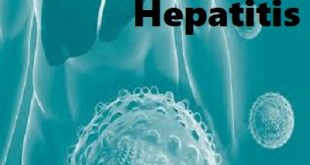
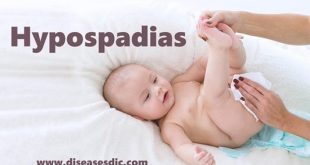
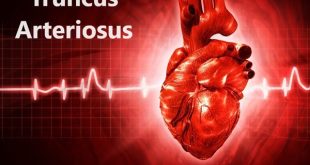
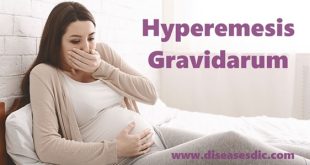
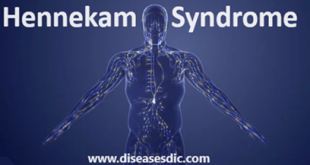
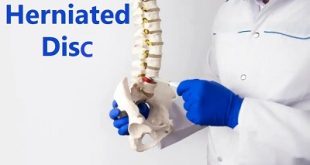
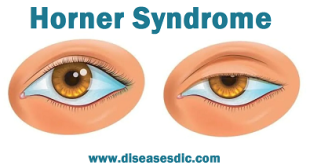

waoh am really impressed about this lesson it will help me a lot because I have been a victim of heart disease thanks alot
A great job by all standard, no doubt about the great minds behind this. Bringing medicine and its associates to our doorsteps. There is more from where this came.
looking at the due decorum of the universe, this app has really made a greater impact and I will also benevolently share and lecture the blind who have not yet recover their sight to see and download this anointed app ,….. stay bless
TABLETS using for Heart Diease are ATORA, BRILINTA, CARCA, NIKORAN.. Plse help to give substitute TABLETS names as these TABLETS are not found in our area in Pharmacy
Rivaroxaban (Xarelto)
Dabigatran (Pradaxa)
Apixaban (Eliquis)
Heparin (various)
Warfarin (Coumadin)
Please ensure that these tablets are suitable for your health condition with your cardiologist specialist.
Easy to understand by a common man. Excellent article .
this is really good, i so much appreciate the write up
my right artillery of heart is not working how is suppose to be, what can I do, and if have sex some time if I cough blood come out
The article with its pictorials are excellent and informative. You can kindly cover – Prolapse of Miteral valve, AML, Regurgitation in Tricuspid valve and Miteral valves. Thank you. I have these problems. Bala
my wife always complain of her heart and when she is rush to the hospital, she always gets a drip before she comes back to normal condition. the question is what is the causes?
Consult a cardiologist to avoid serious conditions. Falling may also a reason for high blood pressure.
super and great short note.but in the same way I am expecting about arrhythmia too
Thank you for sir. we will soon update about arrhythmia.
it is different from heartburn
Yes, it is different from heart burn. Heart burn is due to acid reflux in the stomach.
please am having a slits pains in my heart, my left hand is week when I carry any little thing. today is making 2days since I started experiencing this. please help am worried
Please consult a cardiac specialist immediately to avoid serious health issues in future.
Ooo Wow….. Such a excellent…… Story of the Heart disease
???????
Pls
get us pictures of saturated foods
Sure we will update in the post shortly.stay tuned. Thank you.
how do i treat myself if am very far from the hospital. at times i feel very liw in terms of breating as if may be the heart will stop pumping. i really need your advise thanking you in advance kennedy kata.
Take home remedies. It is very much necessary to get a help from doctor regarding your health conditions. You should go hospital Atleast once in a time even though if you are far away from hospital.
Am having a lot of pain on my left hand side of the chest both in front and behind ,I tried all the test but all negative but am in a lot of pain more so when am sleeping.what can I do
Go for any natural treatments using herbals. Consult with a cardiologist because chest pain might be the symptoms of cardiac diseases.
what about valvuar heart disease
We will soon update on this topic. Please Stay tuned. Thank you.
Thanks
my i have a problems of night breathing ad chest pain ,I did clay of the chest nothing I need ur advance
please consult a doctor.
For all heart just we take only aspirin and nitroglycerin tablets
why don’t we take the tablets that cures heart disease…..?
wow! this is so great, am a victim of a heart problem. I was born with it but at list now i can reduce something in my problem.
most helpful information for heart patient.
pls my husband complains of severe pains on d heart region of his chest,a doc gave him some drugs(vasoprin n barole 20)that he should take it for a month before they do an ECG but presently he is complaining
seriously of pains on his ribs,pls advise.
thanks.
Please consult a cardiologists as soon as possible.
Is it possible that a blood clot can burst in your leg? if so, what the risk involved? can the muscles be affected? please reply, thank you!……………………………………………………………..
Yes, it can burst and may damage the surrounding tissue in the blood vessels.
when I was at school I just feel a sudden short breathing but after I went to clinic they said there’s nothing wrong and maybe I’am just tired but I am not doing anything,and sometimes I just feel a sudden chest tightness and my tears come out even tho I’m not crying,please help me.
Please consult a doctor for better prescription and results.
hallo thank u! so may I get an advice plz!
nowadays am having quick heart beat, headache, feeling very hungry each second, feet swelling then what could I do??
I have being experiencing left chest pain and also both the lungs Is like swelling too
Please consult a pulmonologist.
I am getting chest pain what does that mean?
It doesn’t mean normal chest pain is heart disease. It might also because of heavy workout and sometimes it may due to trouble in expelling stomach gas through mouth. But we strongly suggest you consult with a cardiologist for a proper diagnosis of the issue.
I find it difficult in breathing in n out and also pains in the middle of my chest. so pls help me
Possible causes of chest pain · chest pain · fever · trouble breathing · fatigue · racing heartbeat. You should see a doctor immediately if you suspect severe pain during breathing.
my wife always has sharp pain in the area of the liver and stomach
Good information, where in Nairobi can I go for check-in
thanks